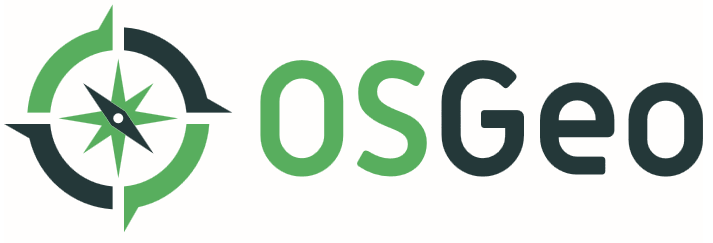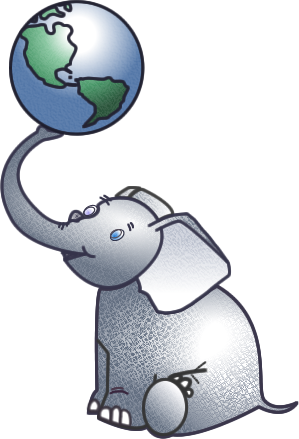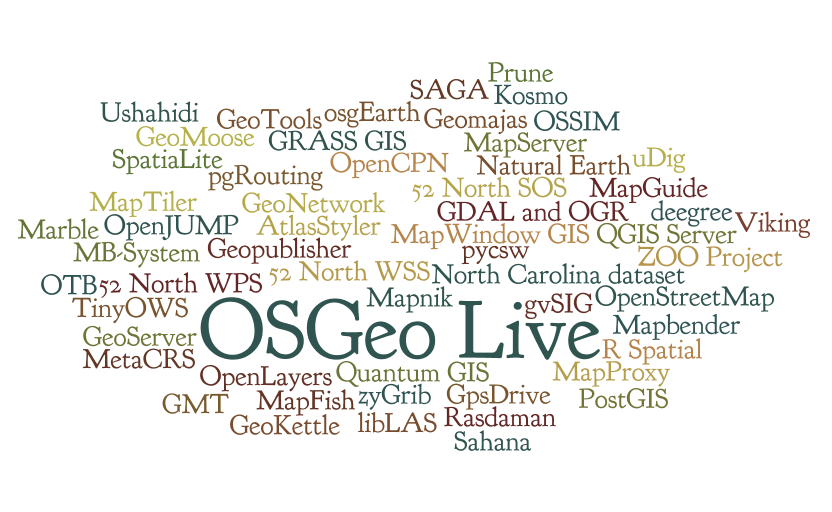Difference between revisions of "Google Summer of Code 2022 Ideas"
Rahulworld (talk | contribs) (Created GSoC 2022 page) |
Rahulworld (talk | contribs) m (updated) |
||
| Line 4: | Line 4: | ||
</center> | </center> | ||
| − | + | ----- | |
| + | * Back to the main OSGeo [[Google Summer of Code 2022]] wiki page. | ||
| − | * | + | * See also ideas from [[Google Summer of Code 2020 Ideas|2021]],[[Google Summer of Code 2020 Ideas|2020]], [[Google Summer of Code 2019 Ideas|2019]], [[Google Summer of Code 2018 Ideas|2018]], [[Google Summer of Code 2017 Ideas|2017]], [[Google Summer of Code 2016 Ideas|2016]], [[Google Summer of Code 2015 Ideas|2015]], [[Google Summer of Code 2014 Ideas|2014]], [[Google Summer of Code 2013 Ideas|2013]], [[Google Summer of Code 2012 Ideas|2012]], [[Google Summer of Code 2011 Ideas|2011]], [[Google Summer of Code 2010 Ideas|2010]], [[Google_Summer_of_Code_2009_Ideas|2009]], [[2008_SoC_Merged_Ideas|2008]], [[2007_SoC_Merged_Ideas|2007]]. |
| − | + | ----- | |
| − | == New Modifications with GSoC | + | == OSGeo Google Summer of Code 2022 == |
| + | |||
| + | The [http://www.osgeo.org Open Source Geospatial Foundation] would like to extend a welcome to all SoC students. On this page, you will find links to a host of ideas organized by project. You will find ideas ranging from the depths of computer science graph theory to the heights of visualization. One thing all these ideas have in common is lots and lots of spatial data. | ||
| + | |||
| + | These ideas are '''*only*''' to motivate you and serve as an example of the kind of hills we want to charge up. Your own ideas are more than welcome - they are encouraged. We view you as the next wave of open source leaders and the future of the geospatial industry; show us what you've got! | ||
| + | |||
| + | * '''Students: check out the [[Google Summer of Code Recommendations for Students]] page. If you need more information on how to apply you can contact all the mentors via the OSGeo-SoC mailing list''' ([[#How to get in contact via mailing lists|see below]]) And look at [https://developers.google.com/open-source/gsoc/help/responsibilities GSoC Roles and Responsibilities ] to understand a successful teamwork and interplay of project, mentors, and students. | ||
| + | |||
| + | * There is a [https://developers.google.com/open-source/soc/resources/flyers Google SoC flyer] to look at and post in appropriate places. | ||
| + | |||
| + | * Ok, [[OSGeo]] is involved in working with maps and things, but what kind of projects does it really do? Have a look at the [http://planet.osgeo.org/ live blog feed] to see what people are working on right now. | ||
| + | |||
| + | * Mentors, there's an additional link providing some tips and specifying your responsibilities on the main OSGeo [[Google Summer of Code 2021 Administrative]] wiki page. | ||
| + | |||
| + | == New Modifications with GSoC 2022 == | ||
* '''Smaller project size''' - All students participating in the 2021 program will be working on ~175 hour project (instead of 350 hr project). | * '''Smaller project size''' - All students participating in the 2021 program will be working on ~175 hour project (instead of 350 hr project). | ||
| Line 17: | Line 32: | ||
* '''Eligibility requirements''' - In 2020 there are many ways students are learning and we want to acknowledge that the students who are 18 years old AND currently enrolled (or accepted into) a post-secondary academic program as of May 17, 2021 or have graduated from a post-secondary academic program between December 1, 2020 and May 17, 2021 are eligible to apply to the GSoC program. Check [https://summerofcode.withgoogle.com/rules/ Eligibility] here. This means that now the program will be open to folks participating in a variety of different academic programs, not just accredited university programs. This includes licensed coding camps, community colleges, and many other programs that may not be accredited yet but are post-secondary academic programs. | * '''Eligibility requirements''' - In 2020 there are many ways students are learning and we want to acknowledge that the students who are 18 years old AND currently enrolled (or accepted into) a post-secondary academic program as of May 17, 2021 or have graduated from a post-secondary academic program between December 1, 2020 and May 17, 2021 are eligible to apply to the GSoC program. Check [https://summerofcode.withgoogle.com/rules/ Eligibility] here. This means that now the program will be open to folks participating in a variety of different academic programs, not just accredited university programs. This includes licensed coding camps, community colleges, and many other programs that may not be accredited yet but are post-secondary academic programs. | ||
| + | == The ideas pages == | ||
| + | '''''[Check back often, it's a work in progress]''''' | ||
| + | |||
| + | To add your page, <strong>please contact the GSoC admin team</strong> to let them know of your ideas page, by sending an email to [mailto:gsoc-admin@osgeo.org gsoc-admin@osgeo.org] | ||
| + | |||
| + | Each participating project's list of ideas is on the respective projects' wikis, with a short description of the project and what type of students would be interested in it: | ||
| + | |||
| + | |||
| + | === OSGeo Foundation graduated projects === | ||
| + | |||
| + | [[Image:logo-qgis.png|60px|right]] | ||
| + | * [https://github.com/qgis/QGIS/wiki/Google-Summer-of-Code-2021-Ideas '''QGIS''' Ideas ]: [https://qgis.org QGIS] is a user friendly Open Source GIS that runs on Linux, macOS and Windows. QGIS supports vector, raster, and database formats. It is written in C++ and Python. | ||
| + | |||
| + | |||
| + | [[Image:logo-grass.png|60px|right]] | ||
| + | * [https://trac.osgeo.org/grass/wiki/GSoC/2021 '''GRASS GIS''' SoC Ideas]: [http://grass.osgeo.org GRASS GIS] is an open source GIS focusing on analysis, modeling and visualization. It is a collection of modules written in C and Python and has a GUI written in wxPython. If you know Python, or want to implement algorithms in C, take a look! | ||
| + | |||
| + | |||
| + | [[Image:logo-postgis.png|60px|right]] | ||
| + | * [https://trac.osgeo.org/postgis/wiki/GoogleSummerCode2021 '''PostGIS''' Ideas]: [http://postgis.net PostGIS] spatially enables the popular PostgreSQL object-relational database, allowing it to be used as a back-end database for geographic information systems (GIS) and web-mapping applications. | ||
| + | |||
| + | |||
| + | <!-- | ||
| + | [[Image:logo-gvSIG.png|60px|right]] | ||
| + | * [[GvSIG_GSoC_2020_Ideas|'''gvSIG''' Ideas]]: gvSIG is a free GIS project for [http://www.gvsig.com/en/web/guest/products/gvsig-desktop Desktop]. The gvSIG project looks for students with Java or Python skills that want to develop new ideas on this software. | ||
| + | --> | ||
| + | |||
| + | === OSGeo Foundation community project === | ||
| + | |||
| + | [[Image:Pgrouting-logo.png|60px|right]] | ||
| + | * [https://github.com/pgRouting/pgrouting/wiki/GSoC-Ideas:-2021 '''pgRouting''' Ideas]: [http://pgrouting.org pgRouting] extends the PostGIS / PostgreSQL geospatial database to provide geospatial routing functionality and more. | ||
| + | |||
| + | <!-- | ||
| + | [[Image:Pygeoapi-logo.png|120px|right]] | ||
| + | * [https://github.com/geopython/pygeoapi/wiki/Soc---Google-of-summer-code-(2020) '''pygeoapi''' Ideas]: [https://pygeoapi.io/ pygeoapi] provides the capability for organizations to deploy a RESTful OGC API endpoint using OpenAPI, GeoJSON, and HTML. | ||
| + | --> | ||
| + | |||
| + | === OSGeo Guest Projects === | ||
| + | |||
| + | [[Image:Mapmint-logo-small.png|60px|right]] | ||
| + | * [https://github.com/mapmint/mapmint/wiki/MapMint-In-Google-Summer-of-Code#google-summer-of-code-2021 '''MapMint''' Ideas]: [http://mapmint.com/ MapMint] is an internet-based Geographic Information System (GIS), which is designed to facilitate deployment of Spatial Data Infrastructure (SDI). MapMint combines various different software in a complete and coherent web mapping platform, thus helping users in building their own maps and web-applications." | ||
| + | |||
| + | === Don't see in the list the project you're interested in? === | ||
| + | |||
| + | Contact them in their developers mailing list! Feel free to propose your own idea and get feedback! | ||
| + | |||
| + | == I want to apply as a student == | ||
| + | |||
| + | Before applying as a student, check out the [[Google Summer of Code Recommendations for Students]] page. | ||
| + | |||
| + | === Which project do I choose? === | ||
| + | |||
| + | Most of the software projects are available pre-built on our OSGeoLive { DVD | USB stick | VirtualMachine } with project overviews and short tutorials where you can try everything out. | ||
| + | : View the documents and download the ISO from https://live.osgeo.org | ||
| + | [[File:Osgeolive wordle.png|500px|center]] | ||
| − | + | === Important dates === | |
| − | |||
| − | |||
| − | |||
| − | |||
| − | |||
| − | |||
| − | |||
| − | |||
| − | |||
| − | |||
| − | |||
| − | |||
| − | |||
| − | |||
| − | |||
| − | |||
| − | |||
| − | |||
| − | |||
| + | * [https://developers.google.com/open-source/gsoc/timeline '''The official timeline'''] | ||
| − | [[Category:Google Summer of Code]] | + | [Back to [[Google Summer of Code 2022]] @ OSGeo] |
| + | [[Category: Google Summer of Code]] | ||
Revision as of 05:51, 9 January 2022
- Back to the main OSGeo Google Summer of Code 2022 wiki page.
- See also ideas from 2021,2020, 2019, 2018, 2017, 2016, 2015, 2014, 2013, 2012, 2011, 2010, 2009, 2008, 2007.
OSGeo Google Summer of Code 2022
The Open Source Geospatial Foundation would like to extend a welcome to all SoC students. On this page, you will find links to a host of ideas organized by project. You will find ideas ranging from the depths of computer science graph theory to the heights of visualization. One thing all these ideas have in common is lots and lots of spatial data.
These ideas are *only* to motivate you and serve as an example of the kind of hills we want to charge up. Your own ideas are more than welcome - they are encouraged. We view you as the next wave of open source leaders and the future of the geospatial industry; show us what you've got!
- Students: check out the Google Summer of Code Recommendations for Students page. If you need more information on how to apply you can contact all the mentors via the OSGeo-SoC mailing list (see below) And look at GSoC Roles and Responsibilities to understand a successful teamwork and interplay of project, mentors, and students.
- There is a Google SoC flyer to look at and post in appropriate places.
- Ok, OSGeo is involved in working with maps and things, but what kind of projects does it really do? Have a look at the live blog feed to see what people are working on right now.
- Mentors, there's an additional link providing some tips and specifying your responsibilities on the main OSGeo Google Summer of Code 2021 Administrative wiki page.
New Modifications with GSoC 2022
- Smaller project size - All students participating in the 2021 program will be working on ~175 hour project (instead of 350 hr project).
- 2 evaluations (instead of 3) - There will be an evaluation after 5 weeks and the final evaluation will take place after the 10th week. Also, the students are no longer required to complete their first evaluation (though we encourage them to do so), so if a student doesn’t complete the first evaluation they will not automatically be removed from the program. They are still required to complete the final evaluation.
- Eligibility requirements - In 2020 there are many ways students are learning and we want to acknowledge that the students who are 18 years old AND currently enrolled (or accepted into) a post-secondary academic program as of May 17, 2021 or have graduated from a post-secondary academic program between December 1, 2020 and May 17, 2021 are eligible to apply to the GSoC program. Check Eligibility here. This means that now the program will be open to folks participating in a variety of different academic programs, not just accredited university programs. This includes licensed coding camps, community colleges, and many other programs that may not be accredited yet but are post-secondary academic programs.
The ideas pages
[Check back often, it's a work in progress]
To add your page, please contact the GSoC admin team to let them know of your ideas page, by sending an email to gsoc-admin@osgeo.org
Each participating project's list of ideas is on the respective projects' wikis, with a short description of the project and what type of students would be interested in it:
OSGeo Foundation graduated projects
- QGIS Ideas : QGIS is a user friendly Open Source GIS that runs on Linux, macOS and Windows. QGIS supports vector, raster, and database formats. It is written in C++ and Python.
- GRASS GIS SoC Ideas: GRASS GIS is an open source GIS focusing on analysis, modeling and visualization. It is a collection of modules written in C and Python and has a GUI written in wxPython. If you know Python, or want to implement algorithms in C, take a look!
- PostGIS Ideas: PostGIS spatially enables the popular PostgreSQL object-relational database, allowing it to be used as a back-end database for geographic information systems (GIS) and web-mapping applications.
OSGeo Foundation community project
- pgRouting Ideas: pgRouting extends the PostGIS / PostgreSQL geospatial database to provide geospatial routing functionality and more.
OSGeo Guest Projects
- MapMint Ideas: MapMint is an internet-based Geographic Information System (GIS), which is designed to facilitate deployment of Spatial Data Infrastructure (SDI). MapMint combines various different software in a complete and coherent web mapping platform, thus helping users in building their own maps and web-applications."
Don't see in the list the project you're interested in?
Contact them in their developers mailing list! Feel free to propose your own idea and get feedback!
I want to apply as a student
Before applying as a student, check out the Google Summer of Code Recommendations for Students page.
Which project do I choose?
Most of the software projects are available pre-built on our OSGeoLive { DVD | USB stick | VirtualMachine } with project overviews and short tutorials where you can try everything out.
- View the documents and download the ISO from https://live.osgeo.org
Important dates
[Back to Google Summer of Code 2022 @ OSGeo]







